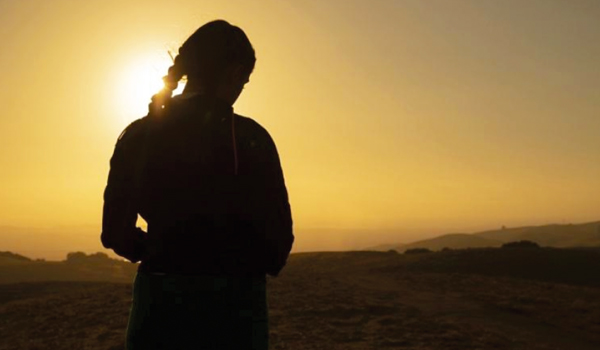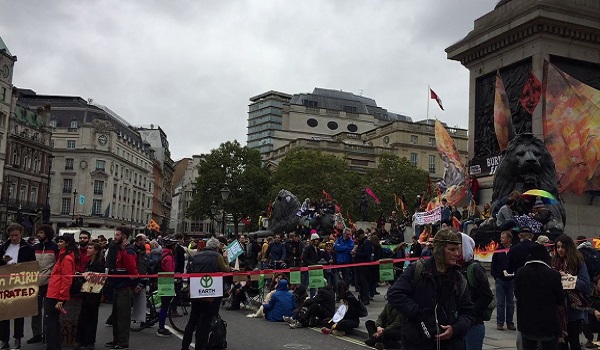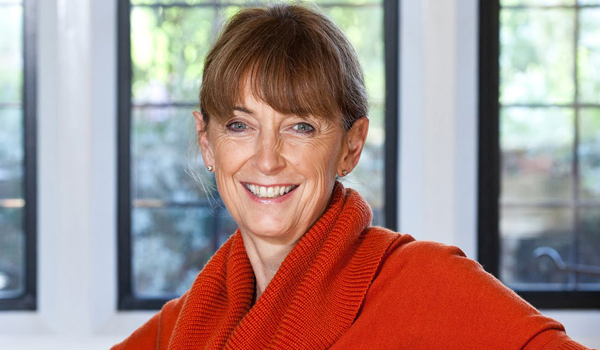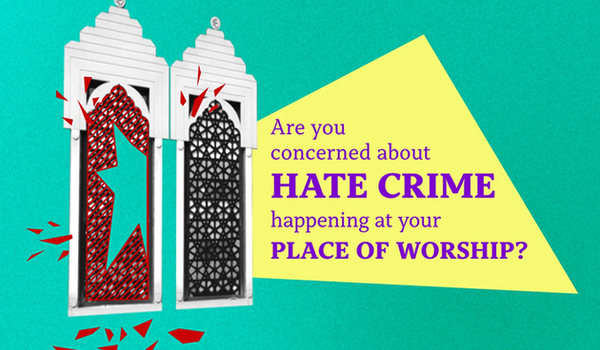Suspected child slavery referrals soar by 1,400 per cent
Referrals of suspected child victims of modern slavery made by councils in England have soared by more than 1,400 per cent in five years, putting children’s services under increasing and significant pressure, the Local Government Association (LGA) warns today (July 30).
The LGA is concerned that the lifting of Covid-19 restrictions could lead to more exploitation as businesses reopen, as some may lack money to pay staff wages and others take advantage of people who have been made more vulnerable by the pandemic.
It says the closure of other businesses, such as nail bars, has left trafficking victims further away from the public eye and harder to identify and rescue.
Latest statistics show the number of council referrals of suspected child victims of modern slavery in England to the National Referral Mechanism (NRM) – the UK’s framework for referring and supporting victims – has risen from 127 in 2014 to 1,971 in 2019, an increase of 1,452 per cent.
The rate of these child referrals increased by 71 per cent in a year alone, with the number of referrals in 2018 standing at 1,152. Children accounted for 91 per cent of all referrals (child and adults) made by councils in England in 2019.
Councils account for a much smaller proportion of adult referrals into the NRM, but adult referrals by councils in England have risen by 579 per cent in five years, from 28 in 2014 to 190 in 2019, and by 81 per cent in the past year, from 105 in 2018.
Councillor Nesil Caliskan, chair of the LGA’s Safer and Stronger Communities Board, said: “The spiralling rate of referrals, especially those relating to children, is having a huge impact on overstretched council services, particularly children’s services. The easing of coronavirus restrictions could lead to more people being exploited by unscrupulous businesses seeking to make up for lost income by breaching minimum wage laws.
“Government needs to ensure councils are properly funded in the long term to tackle modern slavery and support its victims, as well as creating a future-proof NRM system able to support the growing numbers of victims we are seeing.”
A report published earlier this month by the Centre for Social Justice – It Still Happens Here – suggests there could be at least 100,000 victims in the UK, with the overall costs to society of modern day slavery estimated to be between £3.3 billion and £4.3 billion.
The report warned: “Human traffickers and organised crime groups are running riot in too many communities. Very few face prosecution relative to the number of victims found and even fewer are convicted.
“As the number of victims discovered has skyrocketed in the last five years, convictions have barely increased.”
The Centre for Social Justice said in the year ending March 2019 there were 322 completed prosecutions for modern slavery-related crimes and 219 convictions served. During the same period, 7,525 adults and children were identified as potential victims of modern slavery.
Mark Burns-Williamson, the Association of Police and Crime Commissioners lead for modern slavery, said the Centre for Social Justice report “made it abundantly clear” that modern-day slavery remains a “very real and ongoing threat to our communities”.
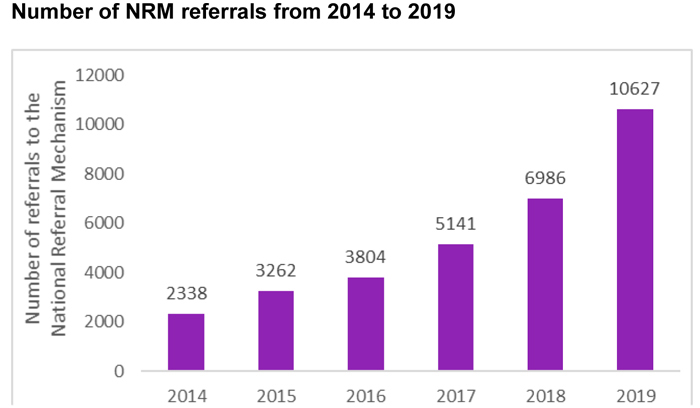
The LGA said the spiralling rate of modern slavery referrals was further evidence of the huge pressures on children’s services, and is being fuelled by both an increasing awareness of modern slavery and of the exploitation of young people by County Lines drugs gangs.
As well as pressure on children’s services, the rising number of adult victims is also adding to demand for housing and adult social care support.
No specific funding is given to councils to support the increasing number of modern slavery victims, who may have suffered terrible abuse, been forced to live in squalor and, in the case of many adult victims, paid appallingly low wages as a result of exploitation by criminal gangs, says the LGA.
While child victims are supported through children’s services, adult victims of modern slavery are eligible to enter the NRM and receive specialist support. To protect individuals during the coronavirus pandemic, the Government agreed not to move people out of NRM accommodation during the height of the Covid-19 emergency, however, this temporary measure is due to end in early August.
The LGA said that with adequate funding, councils could help disrupt and tackle the crime through regulatory services and provide support to the growing numbers of victims going into and coming out of the NRM.
Ms Caliskan said: “Councils are determined to tackle the wicked crime of modern slavery, which is a rising and almost invisible threat to our communities and can ruin the lives of vulnerable people.
“Modern slavery is happening in local communities everywhere, with high street services such as car washes and nail bars being high risk sectors for exploitation. The public should look out for tell-tale signs, including people who may be dressed inappropriately for the work they are doing, or who appear frightened or withdrawn at work.”


